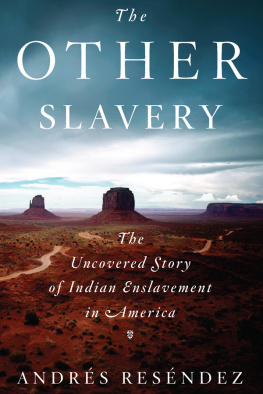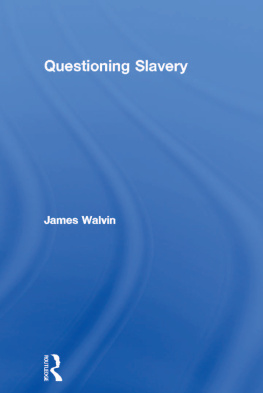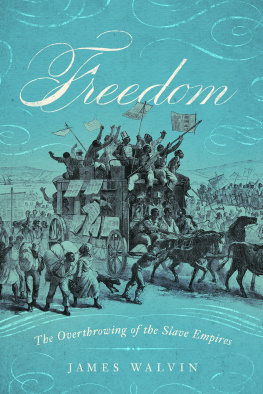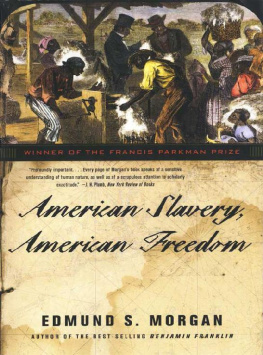The University of Chicago Press, Chicago 60637
The University of Chicago Press, Ltd., London
2019 by The University of Chicago
All rights reserved. No part of this book may be used or reproduced in any manner whatsoever without written permission, except in the case of brief quotations in critical articles and reviews. For more information, contact the University of Chicago Press, 1427 E. 60th St., Chicago, IL 60637.
Published 2019
Printed in the United States of America
28 27 26 25 24 23 22 21 20 19 1 2 3 4 5
ISBN-13: 978-0-226-65592-5 (cloth)
ISBN-13: 978-0-226-65768-4 (paper)
ISBN-13: 978-0-226-65771-4 (e-book)
DOI: https://doi.org/10.7208/chicago/9780226657714.001.0001
Library of Congress Cataloging-in-Publication Data
Names: Ogborn, Miles, author.
Title: The freedom of speech : talk and slavery in the Anglo-Caribbean world / Miles Ogborn.
Description: Chicago ; London : The University of Chicago Press, 2019. | Includes bibliographical references and index.
Identifiers: LCCN 2019008630 | ISBN 9780226655925 (cloth : alk. paper) | ISBN 9780226657684 (pbk. : alk. paper) | ISBN 9780226657714 (e-book)
Subjects: LCSH: SlavesJamaicaSocial conditions. | SlavesBarbados Social conditions. | Oral communicationJamaica. | Oral communicationBarbados. | SlaveryJamaicaHistory. | SlaveryBarbadosHistory.
Classification: LCC HT1096 .O34 2019 | DDC 306.3/62097292dc23
LC record available at https://lccn.loc.gov/2019008630

This paper meets the requirements of ANSI/NISO Z39.481992 (Permanence of Paper).
With One Little Blast of Their Mouths: Speech, Humanity, and Slavery
He suffered and died just for what he had said.
The second account is from the mid-eighteenth-century Jamaican plantation overseer Thomas Thistlewood, whose diaries of his life in the Caribbean What prompted Thistlewood to recall this threat, and its challenge to his word as a white man and the power he thought that conferred, was a more violent recent confrontation where what he said had often come to naught.
Several days before, Thistlewood had gone for an evening walk. At sunset, by a small morass, he encountered Congo Sam, who had escaped from the plantation almost a month previously. They foughtSam with a blunt bill for cutting canes and Thistlewood with a pimento stickand they spoke. As Thistlewood recorded it:
What y e most shewd his intention when I kept him off from me with my Stick Saying, you Villain runaway, away with you, &c. he answered in the Negro manner, I will kill you, I will kill you now, and Came upon me with greater Vigour. I Calld out, Murder, and help ffor Gods Sake, very loud, but no assistance came, so I had no prospect but to loose my Liffe, till I threw myself at him and fortunately seized hold of y e blade of y e Bill.
Holding either end of the weapon, they went as far as the watch-hut, but Sam would go no further. They both appealed to others for help. Thistlewood recorded that Bella and Abigail, two enslaved women from Egypt plantation, were there but would not assist me, and that Sam spoke to them in his language and I was much afraid of them. After a tense standoff, Sam suddenly released the bill and threw himself into the river. Thistlewood followed, attacking Sam with the bill. Finally, trapped in Thistlewoods embrace, Sam was forced to stand waist deep in the water, while, as his captor recorded, 5 Negro men, and 3 Women, Strangers, went over y e bridge and would by no means assist me, neither for Threats nor Promises: One Saying he was Sick, the others yt they were in a hurry. After ten minutes, London, also from Egypt, did do as Thistlewood said. However, Sam escaped once more into the bush, having slipped the knots London had
This incident led Thistlewood not only to remember Quashies threat out in the field but also to record that he had reason to believe yt many off y e Negroes, as Quashe, Ambo, Phibbah, &c. knew yt Sam had an intent to Murder me, when we should meet, by what I heard them Speak one day in y e Cook room, when I was in y e back Piaza reading. He also had his doubts about London, suspecting that he had no good intent, when in y e Bush with Sam, iff he had not heard Company Coming with me. In turn, Thistlewood reported everything to Mr. Dorrill. Sam was taken before the magistrates and sent to jail to await trial, and Abigail and Bella had to suffer the torment of a hundred lashes each, later running away to protest their treatment. Yet, when the case came to court at Savanna-la-mar, Thistlewood recorded that London told me he would not go and give evidence. Sam was not, it seems, convicted of attempted murder.









 This paper meets the requirements of ANSI/NISO Z39.481992 (Permanence of Paper).
This paper meets the requirements of ANSI/NISO Z39.481992 (Permanence of Paper).